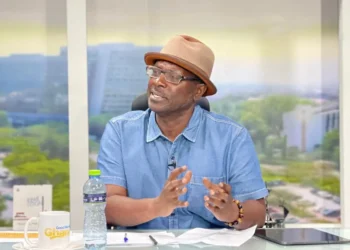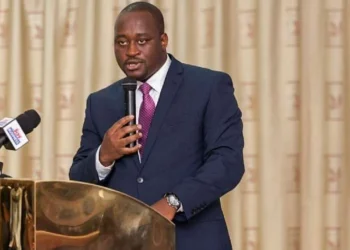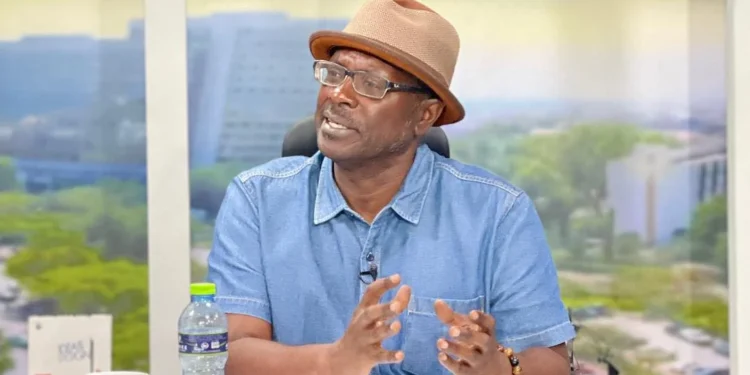The Ministry of Fisheries and Aquaculture Development (MOFAD), in partnership with the Fisheries Commission, has officially announced the implementation of the 2025 Closed Fishing Season for Ghana’s marine fleet.
The annual conservation measure, set to take effect from July 1st, 2025, is aimed at rebuilding dwindling fish stocks, enhancing ocean biodiversity, and securing the future of Ghana’s fisheries sector, which remains a cornerstone of national food security, economic activity, and employment.
According to a press statement by the minitry, the closed season will be implemented across different segments of the marine fishing fleet in accordance with established timelines.
“In line with established timelines: Industrial trawlers will observe a two-month closed season from 1st July to 31st August 2025. Semi-industrial inshore vessels will observe a one-month closure from 1st to 31st July 2025.”
Public Relations Unit, Ministry of Fisheries and Aquaculture
The Ministry emphasized that the closed season is a vital strategy under Ghana’s national fisheries management framework, adding that it is guided by scientific recommendations and international best practices for the preservation and regeneration of marine ecosystems.
The ministry’s statement pointed out that seasonal suspension allows fish stocks to spawn and recover, thereby sustaining livelihoods in the long term.
Canoe Operators Exempted
However, the Ministry made clear that marine artisanal canoe fishers will remain exempt from the 2025 Closed Season. Despite the exemption, canoe operators are expected to continue observing traditional fishing holidays—typically on Tuesdays or other locally sanctioned days—as a complementary local conservation practice.

These efforts are to be coordinated with the Fisheries Commission’s Regional Offices and local government authorities to ensure consistency and compliance.
In reinforcing its regulatory stance, the Ministry issued a strong caution against illegal, unreported, and unregulated (IUU) fishing activities.
It emphasized that practices such as light fishing, the use of undersized mesh nets, chemicals, and explosives remain outlawed and pose significant threats to marine life, human health, and the economic viability of fishing-dependent communities. The Ministry stated unequivocally that any violation of these laws will attract serious penalties.
To support compliance, the Fisheries Enforcement Unit (FEU), in collaboration with other law enforcement agencies, will be deployed to monitor activities across Ghana’s marine waters during the closed season.
The Ministry reiterated its commitment to a zero-tolerance approach and warned that both individuals and companies found in breach of the closure will be prosecuted.
“The Ministry will collaborate closely with local authorities, community leaders and fishers to ensure that everyone is fully aware of their responsibilities during the Closed Season. Stakeholders are encouraged to report any violations through established channels to support effective enforcement.”
Public Relations Unit, Ministry of Fisheries and Aquaculture
Partnership to Assess Impact
The Ministry also disclosed ongoing collaboration with scientists and researchers to assess the broader implications of the Closed Season. This includes biological, economic, and social impact studies that will help shape future policies and improve the sustainability of Ghana’s fisheries.

Additionally, the statement noted that the Ministry is exploring the possibility of establishing Marine Protected Areas (MPAs), which would serve as year-round sanctuaries for marine biodiversity and provide critical support for fish stock recovery.
In its appeal to stakeholders, the Ministry acknowledged the challenges that may arise during the Closed Season, especially for fishers and their dependents.
However, it stressed that the temporary sacrifices will yield long-term dividends by ensuring the health of Ghana’s marine ecosystems and maintaining the economic viability of the sector.
‘The success of the Closed Season is dependent on the collective responsibility of all stakeholders in the fisheries value chain. We understand the challenges this may present to many, but the Ministry believes that by adhering to the regulations and embracing sustainable practices, we can secure a healthier and more prosperous future for our marine resources, our fishers and the communities that rely on them.
Public Relations Unit, Ministry of Fisheries and Aquaculture
The Ministry expressed gratitude to all stakeholders for their cooperation in previous years and reaffirmed its commitment to a transparent and participatory approach in managing Ghana’s fisheries sector.

For additional information or clarification on the 2025 Closed Season, the Ministry directed stakeholders to contact the Acting Executive Director of the Fisheries Commission, Professor Benjamin Campion, via 024-777-6666 or email at benjamin.campion@fishcom.gov.gh
By pairing regulatory enforcement with stakeholder cooperation and scientific guidance, the Ministry of Fisheries and Aquaculture is charting a sustainable course toward marine conservation and food security for future generations.
READ ALSO: NRGI Urges Economic Rigor in Ghana’s Lithium Concessions























